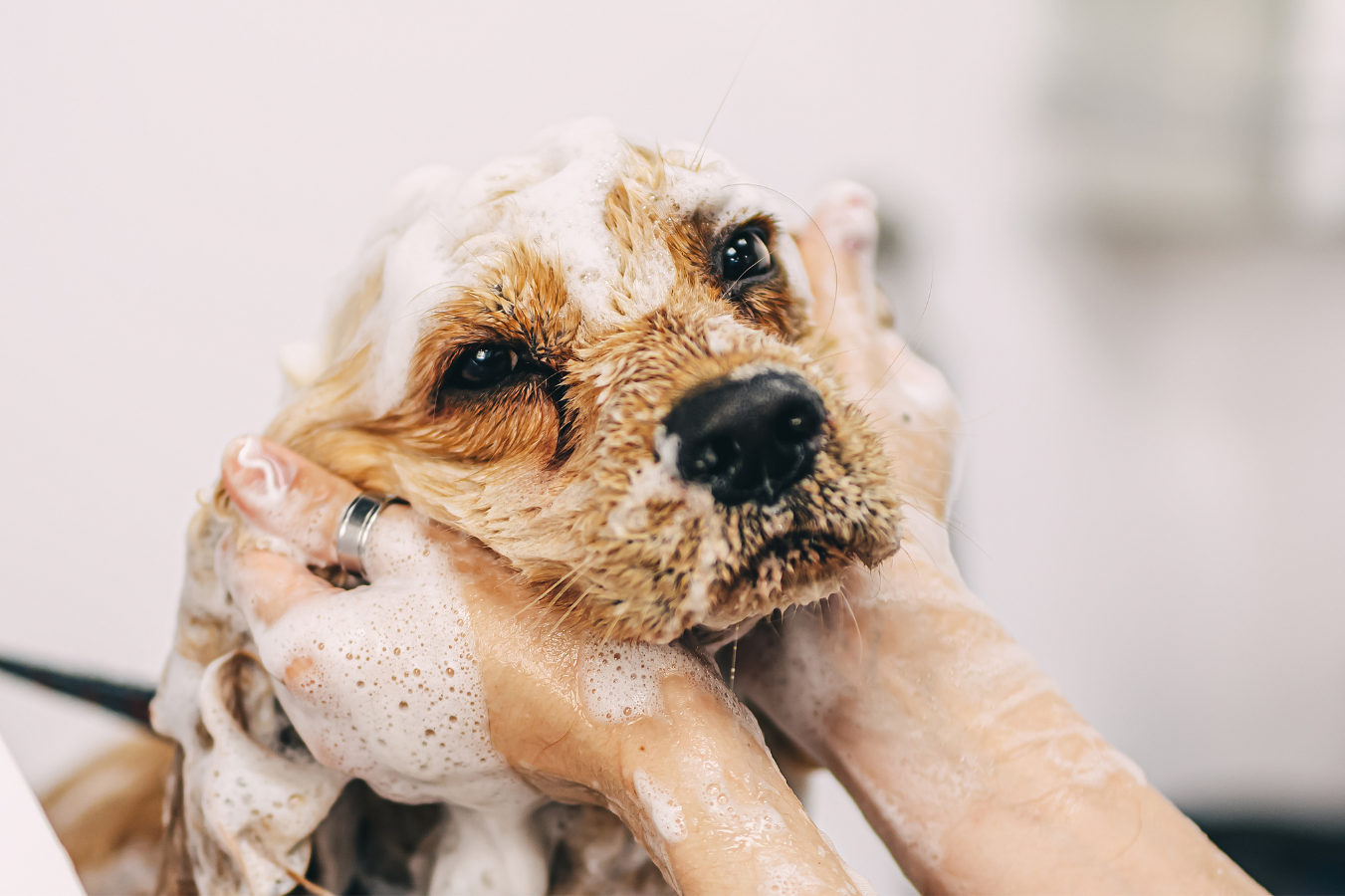
Is your furry companion endlessly scratching, leaving you feeling helpless? Don’t fret; we're here to help you get to the root of the problem. Discover the possible causes, diet recommendations, and helpful products to alleviate your pet's discomfort.
The Root Causes of Itchy Skin in Dogs
If you've noticed your dog's incessant scratching and biting, understanding the underlying issues is crucial. Here's what might be troubling them:
Allergens: Environmental triggers like pollen or household allergens, and even certain food intolerances can irritate your pup's skin.
Parasites: Fleas and ticks aren't just bothersome; they can cause intense itching and inflammation.
Skin Infections: Conditions like bacterial or fungal infections can lead to itching and redness.
Dry Skin: Insufficient grooming or arid conditions might be drying out your dog's skin, leading to that itchy sensation.
Always start with a visit to the vet to pinpoint the exact cause. They might suggest diagnostic tests or an elimination diet, especially if they suspect food allergies.
Crafting the Perfect Diet for Sensitive Doggie Skin
A well-balanced diet plays a pivotal role in maintaining your dog's skin health. Consider these dietary choices:
Hypoallergenic ingredients: Lean towards fish or venison, which are less likely to cause allergies.
Grain-free options: For pups sensitive to grains, opt for alternatives like sweet potatoes.
Fatty acids: Ensure the diet includes omega fatty acids from sources like fish oils, coconut oil, or flaxseed.
Natural and simple: Steer clear of artificial additives, focusing on pure and natural ingredients.
By giving them anti-inflammatory foods, you not only soothe their current issues but also fortify their immune system.
Essential Tips for Feeding Your Itchy Pooch
Choosing the right food is one step. How you feed them can also impact their skin health:
Watch Their Portions: Overfeeding might exacerbate skin issues. Your vet can advise on the right portions.
Consistency is Key: Regular, smaller meals can prevent inflammation and keep blood sugar levels steady.
Avoid Allergens: Beyond the main meal, even treats should be free from potential allergens.
ROYAL CANIN: ALLERGEN FRIENDLY DIET OPTIONS
Treating Parasites Behind the Itch
When parasites such as fleas, ticks, or mites are the culprits behind your dog's itchy skin, swift action is necessary.
Flea and Tick Treatments: Over-the-counter treatments available include oral tablets, spot-on treatments, shampoos, and collars. Brands like Nexgard Spectra, Advantix, and Simparica Trio offer popular and effective solutions. Remember to treat all pets in the household simultaneously.
Regular Grooming: Regular baths with medicated or flea shampoos can provide immediate relief and help in getting rid of these pests.
Environment Clean-Up: Ensure your dog's living environment, including bedding and play areas, is clean. Wash bedding regularly in hot water and vacuum frequently.
Prevention: After treatment, consider preventative measures like monthly tablets or collars to prevent re-infestation.
Consult a Vet: If the infestation is severe or if the over-the-counter treatments aren't effective, see your vet for stronger prescription treatments.
Skin Infections in Dogs: Recognizing and Addressing Them
Dogs can suffer from bacterial, fungal, or yeast infections, all of which can result in itchy skin.
Bacterial Infections (Pyoderma): Symptoms include pustules, crusted skin, and a foul odour. Antibiotics, either topical or oral, are typically prescribed by veterinarians.
Fungal Infections: Ringworm is a common fungal infection in dogs. It causes circular, scaly patches on the skin. Antifungal creams or oral medications are generally the go-to treatments.
Yeast Infections: These often occur in warm, moist areas like the ears or paws. Symptoms include a foul odour and sticky, reddened skin. Antifungal medications or shampoos can be effective.
Maintaining your dog's hygiene, ensuring they're dry after baths, and regular check-ups can help prevent these infections.
Supplements & Topical Solutions for Skin Relief
When it comes to treating dry, itchy skin, these supplements and topical solutions can be game-changers:
Colloidal Oatmeal Shampoos and Conditioners: Colloidal oatmeal has long been used for its soothing properties. These products can provide immediate relief to dry, itchy skin.
Aloe Vera Gel: Natural aloe can soothe and moisturise the skin. Ensure the product you're using is free of additives that might be harmful to dogs.
Coconut Oil: As a supplement, it can boost skin health from the inside. Topically, it can moisturise and soothe. Always use virgin, cold-pressed coconut oil.
Vitamin A: Essential for repairing skin tissues. Consult with your vet for the right dosage.
Vitamin E: Excellent for skin health. It can be given orally or applied directly to the skin. Always ensure the topical product is safe for ingestion in case your dog licks it.
Probiotics: They can enhance gut health, which can, in turn, reflect positively on the skin.
Omega-6 Fatty Acids: Found in oils like evening primrose oil or borage oil, they're known to improve skin health and shine.
CBD Oil: Recently, many pet owners swear by the anti-inflammatory properties of CBD oil for their dogs' skin issues. However, always consult with your veterinarian before introducing this to your dog.
Remember, every dog is unique. It's essential to monitor your dog's response to new treatments and consult your vet before making any significant changes to their routine.
Monitoring & Maintaining Your Dog's Health
Being observant can help you notice potential problems before they exacerbate:
Physical Changes: Regularly inspect their skin and fur.
Eating Habits: Sudden appetite shifts might indicate dietary issues.
Behavioural Clues: Watch out for any drastic behaviour changes.
Consistent grooming is also vital. Brushing and using hypoallergenic shampoos can prevent irritation and allergen buildup.
Final Thoughts
If your dog is persistently scratching, remember that the root cause can often be found in their environment or diet. Opting for high-quality foods, the right supplements, and proper grooming can make a world of difference. Explore Vet Products Direct array of supplements, flea and tick preventatives and skincare products designed to comfort and relieve your canine companion. Your dog's health and comfort are worth every effort.


